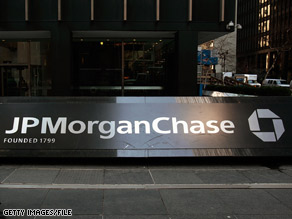Last April, Warren E. Buffett flew to Kansas City, Mo., to join Matthew K. Rose for a ride in a vintage 1930s railcar. Buffett, the billionaire investor from Omaha, and Rose, the chief executive of Burlington Northern Santa Fe (BN), munched on hamburgers and jelly beans as they chugged 430 miles up to Chicago. Along the way, they talked about Burlington Northern's unlikely turnaround and how the once-stalled railroad could build on its recent momentum.
Buffett's interest was more than academic. A year earlier, his company, Berkshire Hathaway (BRK), had acquired a 10.9% stake in Burlington, later increased to 18.5%, making it the company's largest shareholder. The railroad is the fourth-biggest public stockholding in the famous Buffett portfolio. "He told me very clearly that he doesn't care about what we do next quarter or next year," Rose recalls. But as encouraging as Buffett's long-term perspective was at the time, six months and one global financial crisis later, Burlington faces new obstacles.
U.S. freight railroads have recovered after decades of struggling to eke out profits—with Burlington leading the way—but the industry is heading into tougher times along with the rest of the American economy. High oil prices, which have given the railroads an advantage over rival long-distance trucking companies, are dropping fast. The voracious consumer appetites that have kept Burlington's freight cars stuffed with PCs and flat-screen televisions are shrinking. And lending remains tight, even for the comeback railroad sector. Rose has been forced to put some expansion plans on hold.
Still, unlike many corporate executives who seem shell-shocked by the financial turmoil, Rose sounds optimistic. He believes innovation will allow Burlington to continue to thrive, if at a slower pace.
THE OIL ADVANTAGE
Rose, a compact 49-year-old who once looked at railroads with scorn, argues that a more attentive manner with customers—basically, getting their loads delivered on time—will continue to win the loyalty of shippers such as overnight-package giant United Parcel Service (UPS). Marketing a 200-year-old means of moving freight as the greenest, most progressive way to get the job done will also help sell Burlington, Rose says. Longer term, new safety and monitoring technology could allow him to run trains closer together, increasing efficiency. "Our value to society is much bigger than our market valuation," he says. "The fundamentals of transportation in this country favor rail."
That market valuation—$29 billion—is nothing to sneeze at. Burlington's stock has risen 259%, to about $83, since Rose took over as president and CEO in 2000. The price has remained relatively steady amid the overall market's breathtaking decline. "Burlington, like the rest of the railroad industry, will definitely face challenges, at least on the volume side, in a full-blown recession," says Jason H. Seidl, an industry analyst with boutique investment bank Dahlman Rose. "But it should still be able to maintain its pricing power, as a large percentage of its business is not [facing tough competition from] other modes of transportation."
'Business' 카테고리의 다른 글
| Asia stock markets resume slide on recession fears (0) | 2008.10.27 |
|---|---|
| Asian and European Leaders Urge New Financial Rules (0) | 2008.10.26 |
| Want a Loan? Act Responsibly (0) | 2008.10.24 |
| Microsoft's Earnings Don't Disappoint (1) | 2008.10.24 |
| Credit Crisis May Force Metro to Pay Millions (1) | 2008.10.24 |




